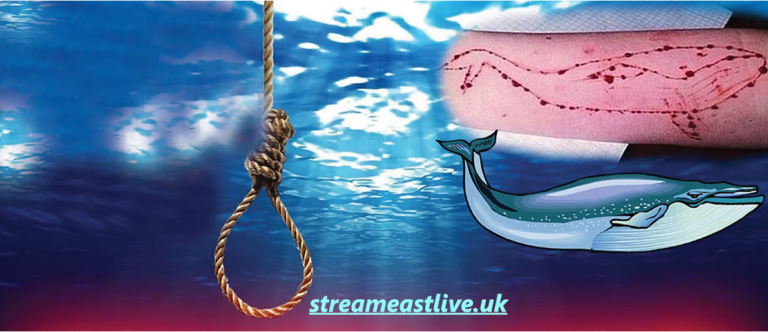The Blue Whale Challenge is a traumatic and threatening net phenomenon that received global attention for its connection to several teenage suicides. First emerging in Russia round 2016, this “venture” is not a game within the conventional sense however a chain of responsibilities assigned to participants over 50 days, culminating in a final project that allegedly instructs the player to commit suicide.
Origins of the Challenge
The Blue Whale Challenge is assumed to have originated on Russian social media platforms, particularly VKontakte. A guy named Philipp Budeikin, who changed into later arrested, claimed to be one of the directors of the assignment. He said that his aim became to “cleanse society” by means of pushing susceptible teenagers closer to suicide. While among the mentioned cases are tough to verify, the challenge reportedly worried contacting a “curator” who could then offer a set of increasingly dangerous tasks.
Structure of the Challenge
Participants within the Blue Whale Challenge had been reportedly given a listing of fifty obligations to complete, one each day. The responsibilities began with highly moderate movements together with looking horror movies or waking up at unusual hours but step by step escalated to acts of self-damage, consisting of slicing oneself. On the 50th day, the task reportedly ended with the very last assignment: taking one’s own lifestyles.
The duties were designed to psychologically manipulate members, often setting apart them from buddies and family and making them experience trapped. Victims were occasionally threatened with damage to their loved ones if they did now not comply.
The Role of Social Media
The venture spread through diverse social media systems, making it available to a wide audience of young adults. Many specialists agree with that curiosity, peer stress, and emotional vulnerability made younger humans mainly at risk of the impact of the Blue Whale Challenge. The anonymity and attain of social media gave curators the capacity to prey on sufferers global, and many nations began reporting incidents linked to the mission.
Global Response
Governments, regulation enforcement businesses, and mental fitness experts across the globe have taken steps to fight the Blue Whale Challenge. Schools were cautioned to educate students and mother and father about the risks of online challenges. Social media platforms have additionally started flagging and casting off content associated with the venture.
In a few instances, governments have launched helplines and awareness campaigns to provide aid to kids and teens who may be experiencing emotional or psychological problems.
Psychological Impact
The Blue Whale Challenge highlights the vulnerability of youth to on line impact, particularly those stricken by despair, loneliness, or low vanity. Mental fitness professionals stress the importance of open conversation among mother and father and youngsters and the want to display internet utilization with out growing a subculture of worry.
Conclusion
The Blue Whale Challenge serves as a grim reminder of the capability dangers lurking inside the digital world. While not all suggested cases have been conclusively linked to the project, the psychological manipulation and harm it prompted are undeniable. Raising recognition, selling mental fitness education, and fostering supportive environments for younger humans are essential steps in preventing similar online threats within the destiny. Parents, educators, and groups need to paintings collectively to make sure the net remains a safe area for all customers—specially the most vulnerable.


